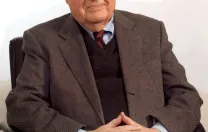D. Ronald Daniel: There’s a very special governance issue at Harvard. That is the role of the Faculty of Arts and Sciences [FAS] in the whole University. Henry obviously can speak to this, but there was a time in Neil’s era, for exampleand Neil had a close and effective relationship with Jeremy [President Neil L. Rudenstine and FAS Dean Jeremy R. Knowles]where the faculty decided it ought to form its own Resources Committee and almost invite itself in at the presidential and Corporation level to examine University-wide financial issues. Neil couldn’t head this off. Jeremy couldn’t head it off. I wondered at the time if it was a reflection of the FAS faculty feeling a little insecure or less central within the University. The business school is so prominent, the law school is so prominent, the medical school is so prominent…
Jay Lorsch: The medical school is also so huge.
Henry Rosovsky: I simply can’t agree that the Faculty of Arts and Sciences would ever feel a sense of inferiority. [laughter]
Daniel: But they appeared to be reaching for more power, for more influence in the University scheme of things.
Lorsch: My way of thinking about it is they have been at the center of power among the faculties and what they’re reluctant to do is to give up any power and to cede any of it, and there are instances in which they want to gain more. I think in their view they are the center of the University and the rest of us are somewhat peripheral, no matter how successful we are. You can see that in the simple fact that nobody else can grant the Ph.D. It’s not a big deal, but it complicates things.






